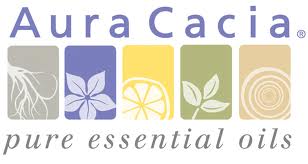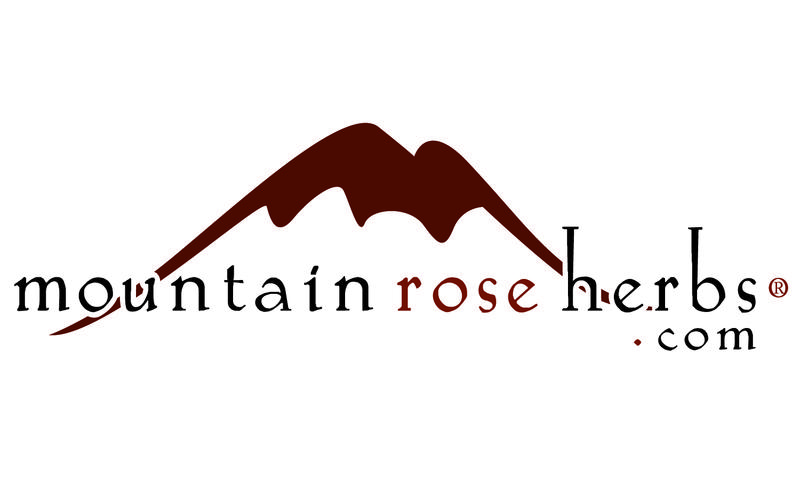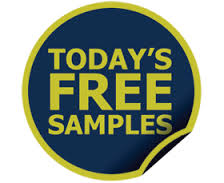Convential VS Organic VS Wild Crafted
This was so confusing at first. Every one is saying their oil is organically grown without pesticides, and others say they are USDA Organic. I hear organic methods but they don't want to raise the consumers price by making them certified organic.
Then their is wild crafted. These are supposed to be beyond organic since they grown in the wild. I know that to certify something as organic can cost almost double the price as conventional, especially if distilling oils on a small scale. Usually its the big companies, that can certify their oils as organic.
Note: there are some really cheap organic oils out there. The difference between an organic oil that is 12 bucks and another that is 25 bucks for the same oil but different company, usually th cheaper one is high pressure or uses more heat to produce it so the processing of the oil is quicker and more efficient and doesn't cost them so much. Sure, they might not use solvents but the high pressure and higher heat they use destroys some of the therapuetic value of the oil. It really pisses me off that they say theirs is undiluted and trash talk others as not being 100% oil when they themselves are not using the best practices.
The price of organic will always be more expensive than organic, non certified. Once a company has an organic certification, most consumers see that "buzz word" as better quality and more trustworthy. This blinds many people of growing practices and the species of that oil and people usually don't question if there was high pressure used because, Oh.... it was organic.
I only use organic oils and wild crafted but I test mine with lasers and other tools I have. You can get a laser for 6 dollars free shipping on Ebay. I strongly suggest everyone test their bottle before even opening it to see how potent it is. This can be done for less than 6 bucks.
My best advice is to know where the oils are sourced from before even considering it. When grown in their region where they would naturally grow they are usually higher quality. I prefer to buy the oil where it grows indiginously (sorry if I misspelled it but I don't have a spell checker on this dang computer). This is another reason why getting the wild crafted version of the oil can be more expensive because there is limited resources and those that buy farm raised oils that are "organically grown" are in more abundance and can harvest it cheaper. There is more of the organic than the wild versions.
Note: I do not alway get the best quality of oil even if it is wildcrafted or organic. The oils are sometimes even 100% pure without adding any filler oils. You can have an oil that uses the entire plant that is distilled to make oil or the high end oils that have the most therapeutic value are taking from the root oxins. Many people take advantage of this from essential oil distillers to even juice bars. I have seen juice bars cut off the entire blades of wheat grass to make juice. The root oxins are in the tips of the grass, not the entire grass where the bottom is pale green or even white. The white part of the blade is close to the bottom where the soil is. To tell if distillers are doing this, you can do the $6 dollar laser test or if you want to take a chance and open it knowing you can't return the oil once opened.
Note: If you ask a dealer or manufacture how much of the plant they cut off to distill, usually they don't know unless they own the distilling plants. It's one of those things that is up to the distiller how much of the root oxins they want to use.
Just because an oil is organic or wild crafted doesn't mean its more potent. This is why you have to test it first before opening it. Some oils are grown "pesticide free" and they don't spend money to make them certified organic. Many people won't pay as much if organic is not on the label.
Here is the argument for conventional oils. Many of these companies say that if the oils are organic they don't have to produce as much oil as the growing conditions and soil are so pure that it is easy for the plants to survive without using pesticides and herbacides. These protective essential oils are made to protect the plants but if they grow stress free then that has to be considered. The tests they run with conventional oils often show they are more concentrated through the tests they do.
The conventional companies also claim that the distillation process evaporates all the pesticides in the oil, similar to a water distiller taking out all the impurities out of water. Since the pesticides have a larger cluster size, they do not evaporate like the oils. If you ask them, they have all told me that even though they used pesticides, non of them are in the oils after they are distilled.
For people who want to avoid any pesticides, this is usually not the problem with conventional oils, it can be the growing conditions and harvesting at non peak times. Some harvests have gotten twice as much sun and others no where nearly as much. What's important for most people is getting the brand with the most therapeutic value. Some have a stronger genetic structure than others grown in not so good conditions but on the labels, they all say the same thing.
The only way to really know is to test the oils before you open them so you don't have to get stuck with an oil that you don't like after you open it. One brand can be your favorite but all they might have left is a late harvest while another brand might have the same species of oil but grown in peak season. I have a doTerra oil and Young Living Oil that last year I liked doTerra but this year I like the harvest of Young Living. I test every oil for the strongest feeling I get. Many people just stick with one brand and never realize what is possible.
Warning: Low cost oils typically have an low shelf life due to its very low number of constituents. The more wildcrafted and organic the way the plant was grown the more organic compounds it usually has. Conventional oil is fine as long as I know I'm not getting all the therapeutic constituents.
If someone is using oils for therapeutic uses, there are brand that I would recommend that are different than those who want to just make the room smell good. There is no need to really buy the super expensive oils unless you need those extra properties they give. It was hard for me to tell which brand was more therapeutic and pure when all the companies say they are pure.
I used to be so focused on using Organic oils until I discovered Wildcrafted ones. The bottom line is that Mother Nature is still more advanced than Man’s Scientific knowledge. For example, Science still doesn’t know how some minerals end up in the plants because they can’t find traces of it in the soil. Like how does Calcium end up in plants when no calcium is found in the soil!? There are very complex bio alchemical processes that Biologists and Chemists can reconcile through traditional understanding of the laws, principles, and theories.
So when Man messes with the soil, messes with the growing cycles, messes with all sorts of different aspects, then we have plants and raw materials that are very different than something that just grew in the Wild.
One of the main things that is effected by Man’s meddling is potency and spectrum of constituents in the resulting oil. For example, most farmers who sell to the oil distilleries are trying to get the biggest yield possible. In general the soil is not alive and has a very low Cation exchange (wikipedia it), low thermophilic content, which yields plants that do not have a vibrant energy potential in their cells (consequentially the oil is low voltage potential and has a weak self organizing homeostatic response on the immune system…lower grade oils can even have an Entropic effect on the human body!)
The plants have weak immune systems also from not having to defend themselves as much against environmental issues like pests. Plants that grow in the wild have adapted to their surroundings and they do this by self organizing a robust innate informed intelligence that is carried on the epigenetics of their DNA generation after generation which provides the morphic informational fields translation through their nervous systems (yes plants have a form of nervous system). The more coherent intelligence a plant carries into the biophysical level, the more complex is their constituent matrix as well as the biophotonic healing capacity to ultimately restore the human adaptation response potential, functionality, coherence, and structural integrity when the oils are used therapeutically.
Traditional farming practices with their transplanting a species to a different environmental setting (with less harsh environments more stability = higher yields, using fertilizers, cultivating hybrids or certain plant’s seeds for their higher oil output, as well as the collective consciousness of the farmers and handlers themselves, all alter a plant and continue to adversely change it from its state when it naturally grows in the wild on it’s own.
So when I need a more therapeutic oil I try to go with Wildcrafted. If I don’t have access to that then I go with an Organic one and I get very specific information from the company about their farming practices. To that end I have personally visited 10 different company’s facilities from distilling to growing. For the most part companies try to exploit all the loopholes they can when it comes to Agricultural guidelines regarding labeling of Organic production. There are a few companies that are the exception and if anyone is curious to know just email me.
These plants have to work much harder to live than organic and farmed plants. They can have a slightly different chemistry to a totally different level of active constituents. Depending on how the organic farmed plants are raised and distilled, they can have a more potent smelling oil. I use wild crafted oil as my control when comparing my oils.
Take my essential oil quiz and I will pick out the best brand based on the answers you choose. If you want samples of the oil that I recommend let me know. Don't worry, it's totally free.
I never buy fruit or vegetables that start with 4.
Buying with the number 3 is even worse.
I only buy if it starts with a 9, Any produce starting with 9 means its certified organic. Grocery stores must display these stickers. Next time, look at the numbers in the grocery store.
Wild Crafted oils are self-propagating, uncultivated, grown and harvested by hand in the wild.
These are not certified organic or can be certified organic.
Most essential oil farms want to take take take from the land and not invest into regenerative farming practices. They want to mass produce and shorten the growing cycles in order to get higher yields in less time. This is why there are some essential oil manufacturers and companies that are making millions of dollars. The only way to make that kind of income is through these profit margins…profit margins that are gained through bad farming practices.
Use of pesticides and other inorganic fertilizers that destroy the soils of healthy bacteria balance and minerals over time. The plants that grow in these weak toxic soils also develop weak immune systems and that means very minimal phytonutrients, oils, and other organic compounds that will never end up in the final product during pressing and distilling of the plant material.
WATCH OUT FOR LIST
Know Before Buying
Helpful Information
When I shop at health food stores, almost everything is farm raised. At least organic farm raised. Probably the most wildcrafted thing in any grocery store is dandelion. These greens are usually hidden in the corner of the vegetable isle where most people over look it. Every time I go to Whole foods, I have never one single time saw dandelion in someones cart. Bananas are the most sold item in any store. Too bad they are usually picked green where the pectin doesn't form into minerals but just sugars. I personally try to find wildcrafted foods when they are available.
Organic raised on a farm. PIcture to the left.
Below is a picture of wild crafted.
I pick wild berries in the summer. I actually pulled over my car when I saw them wacking down the blackberry bushes on the side of the highway in Georgia where I used to live.
I make a salad of lambsquarters which is a special treat for me. For really acidic people, who cant tolerate the astringent nature of wild greens, it might be hard to eat them without some salad dressing.
Name:
Email:
Number:
Best time to call:
Time Zone:
Comments/ Feedback
Please include feedback so it's easier for me to help you.
I only will try to help you based on the answer to your questions.
Which essential oil brands best serves You? I compile useful information to help people make a better decision.
If you are interested in getting a certain brand, take my essential oil quiz first and I will send you samples from the brands that you should consider based off of the Quiz results below. I only will try to help you based on the answers to the questions. Leaving extra comments and feedback that wasn’t covered by the quiz is great too.
If you have a sincere essential oil question that I haven't answered on my website, Please let me know ASAP and I will try to answer it by calling or emailing you back.
Are you a Health Practitioner or a residential user??
What type do you want?
Extraction:
What grade do you want?
Do you care if solvents are used in your oils
Do you care if the oil has a "herby" smell?
Scent:
Distill: Do you want only first distill oil?
Which is more important:
Which brand(s) are you mainly interested in
If other, which one?
The following questions are what I feel are the most basic fundamental ones that you "should" know before attempting to pick your brands and types of oil.
I have worked with and tested nearly every brand of essential on the market. I will contact you personally and help you find the right essential oil brand for your personal or clinical use.
Are you seeking more info about a particular brand or type?
How familiar are you with using essential oils?
Do you know your Ayurvedic Body Type? AKA Dosha Type? If not please take the quiz below and write in your body type into the Quiz comments.
What are you using essential oils for mainly?
Do you want oils grown not in their original native area?
Do you not mind companies that grow the plants not in the peak growing season? This provides a lower cost oil and generally not good for therapeutic usage.
Does it need to have a long Shelf life?
Are you going to be selling them
Would you be interested in reduced price oils if near end of expiration date?
Are you interested or willing to submit a review on the oil samples that we send out?
The Largest essential oil review on the net.
...because every company said their quality was the best.
Which essential oil brands best serves You? I compile useful information to help people make a better decision.
MyEssentialOilReview.com
Ask for free samples of any oil we carry.
I spend several hours a day putting together sampler packages for anyone who calls me.
Ask for Beth when you call.
Today's Special freebies
At Cost specials to first time people coming to my site
Organic Panic:
Ok…so in actuality it’s not so great. It really has always annoyed me how companies in the USA find as many loopholes in the Agricultural guidelines for Organic Standards. We see this in almost any product category that involves topical or internal products.
When I was first getting started with researching about Essential Oils I used to think oh the Organic ones must be the best…boy I couldn’t have been more wrong. Look it’s not like I’m saying that Organic essential oils are bad..I’m just saying that they are not the Gold Standard that everyone else seems to think, especially if you talk to some of these companies sales reps (or “consultants” as they call themselves lol)!
For example, did you know that the all mighty Organic label still allows for 5% non organic additives!! I mean there could be poison in that 5% and it would still get an Organic stamp of approval. Note: I’m not trying to scare anyone away from Organic oils. But I will say this…Some of the mainstream companies do add not the best quality extract in that 5%..in fact they use that 5% to give their oils a different smell or quality to other competitors. You might smell an Organic Peppermint from one brand and meanwhile another has this amazing Peppermint candy type of delicious smell. It’s hard not to choose the candy smell…and of course that brand of peppermint is most popular for those who are planning to use it in their diffuser. With Peppermint it’s common to reduce the menthol or subdue its cooling effects with another more synthetic compound or further processes to reduce those levels…on the other hand Eucalyptus is an oil where some companies try to extract in a way that has a dominant menthol constituent because most folks buy it for respiratory effects and so the company does not concern itself with the other valuable healing lesser constituents. I always look for 100% certified organic, not just certified organic.



















